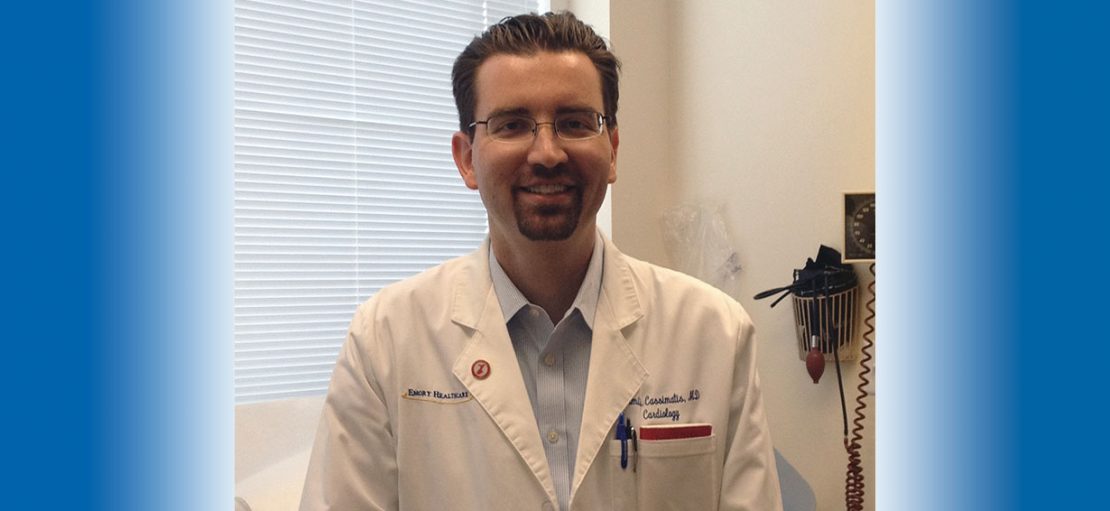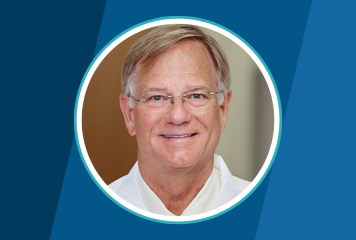Dimitri C. Cassimatis, MD, FACC, is a board certified cardiologist serving on the ABIM Cardiovascular Disease Approval Committee for the traditional, 10-year MOC exam and initial certification exam. He is the Chief of the Department of Medicine at Emory University Hospital Midtown in Atlanta, and co-directs the first-year medical student cardiovascular pathophysiology course at the Emory University School of Medicine.
Dr. Cassimatis served for 11 years as a physician in the US Army, including deployments to Germany and Iraq, rising to the rank of major before leaving service in 2010.
ABIM is proud to honor the brave veterans of the United States armed forces. Thank you for your service.
Whether they were answering the call to serve their country, or seeking the educational and vocational opportunities that service in the military affords, many of our nation’s physicians are also veterans of the armed forces. For Dimitri Cassimatis, MD, FACC, the military was a natural first step and an ideal training ground. His experiences over 11 years of service were a foundational component of his career as a physician, and continue to inform and shape his practice today.
Dr. Cassimatis was raised in an Army family—his father was drafted for service in the Vietnam War, and spent his career as an Army psychiatrist—so he was comfortable and familiar with Army life and culture. He was awarded a full ride to Harvard Medical School on an Army scholarship, and completed his residency in internal medicine and a fellowship in cardiology at Walter Reed National Military Medical Center before being stationed as a cardiologist at Landstuhl Regional Medical Center in Germany. In 2007, he was deployed to Iraq as a general physician.
“The military sets you up for both academic and non-academic positions,” says Dr. Cassimatis. His experience of Walter Reed was similar to an academic institution, but Landstuhl felt more like a private community hospital, due largely to an absence of trainees. Dr. Cassimatis also appreciated military life for its job security. “You don’t have to worry about your job after training. The military needs you and will have a job for you taking care of great people.”
One of the things Dr. Cassimatis admired about training in a military setting was the advantages afforded to his patients by military benefits—he could prescribe medications and the patient would visit the pharmacy in the same building to pick them up at no additional cost—in contrast to civilian practice, in which financial hardship often affects patients’ ability to access prescriptions and treatments. “To practice medicine in an environment where your patients don’t face a financial barrier to health care was really amazing. It made me appreciate the need for better access to basic health care for everyone in this country.”
Above all, his service in the military made it easier for Dr. Cassimatis to love medicine. “The experience of being deployed and being in a warzone affects everybody differently,” he reflects. “It made me appreciate not being at war and not being threatened or at risk here in the United States. That is something you don’t learn to appreciate until you don’t have it for a while. The insecurity of being in a warzone gave me a great appreciation for the security of a nation that is at peace within its own borders.”
As a member of the ABIM Cardiovascular Disease 10-year exam Approval Committee, Dr. Cassimatis is part of a team of physicians contributing input and expertise to questions that ultimately become part of the initial certification and maintenance of certification exams for physicians—a role he considers both rewarding and compelling. “We have a duty to future patients and also to colleagues becoming certified that they take a fair test,” he says.
In addition, Dr. Cassimatis has benefited from the experience by meeting fellow physicians from all over the country, and hearing their different perspectives in a collaborative, collegial environment. “As a committee, we like our work, but what has really kept people engaged and excited is the opportunity to see each other and get to know each other as we do our work. I always learn from others on the committee about the practice of cardiology. It’s rewarding on many levels.”
It’s something Dr. Cassimatis recommends highly to veterans now serving in the field of medicine, and to physicians in general. “Whether you are actively in the military, have prior service, or are a lifelong civilian, if you have an opportunity to get involved with your ABIM specialty board, you will find it very gratifying. I encourage you to look for those opportunities to help write and review questions. I find it very rewarding and I think many others would as well.”
A final comment from Dr. Cassimatis on this Veteran’s Day:
“Thank you for taking care of our armed forces, who took care of us. There are a lot of members, families and retirees who need and deserve excellent health care, and whether you’re a veteran or you just take care of them, thank you. I truly appreciate it.”
— Dimitri Cassimitis, MD, FACC



